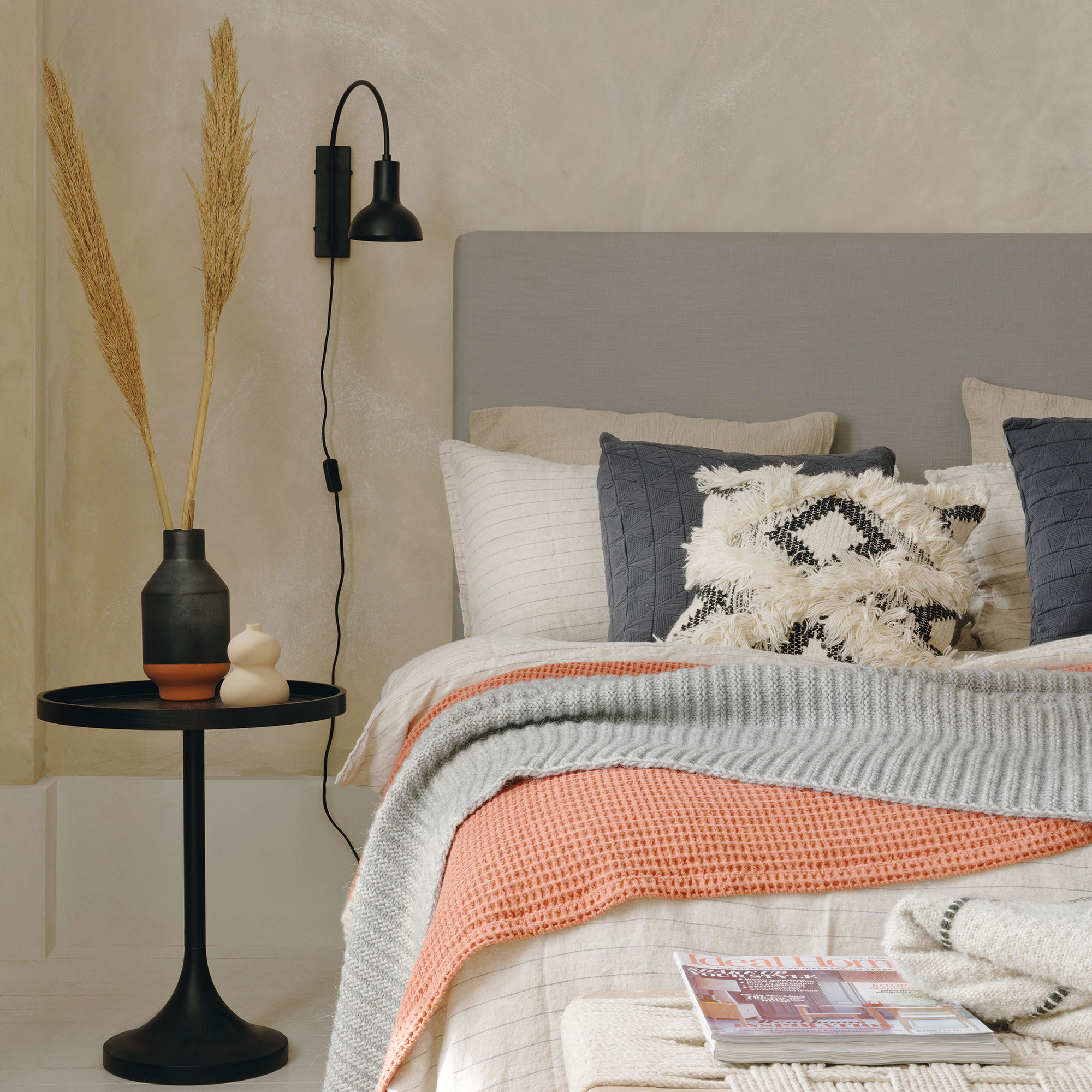Should you wash new bedding before using it for the first time? Experts all agree on this one thing
To wash or not to wash… that is the question


Sign up to our newsletter for style inspiration, real homes, project and garden advice and shopping know-how
You are now subscribed
Your newsletter sign-up was successful
No matter whether you opt for all-white hotel chic or prefer a bold maximalist pattern, you’ll probably agree that new bedding can completely transform your bedroom… and your sleep schedule. But should you wash new bedding before using it for the first time?
Of course, we all know how often you should wash bedding, but it seems as though some of us are a little conflicted when it comes to brand-new bedding that has come straight from one of the best places to buy bedding.
On the one hand, you want to enjoy the fresh feel and style of your new bedding as soon as possible. But on the other hand, there’s something at the back of your mind telling you to wash it first. So, what do you do? We’ve asked the experts, and they’ve settled this debate once and for all.
Should you wash new bedding before using it?
‘It is generally a good idea to wash new bedding once before using it,’ confirms Emily and Jonathan Attwood, Founders of scooms. Yes, there are so many benefits to washing new bedding before you use it for the first time, and we’ve outlined a few of the most important below.

Emily and Jonathan Attwood are the Co-Founders of family-run, independent, luxury bedding and bath brand, scooms. Offering a simplified range of what they believe are the best pillows, duvets, bedding and towels on the market, scooms help make buying luxury and high-quality, natural bedding and towels easier.
1. It will remove chemical traces
Most people don’t want to sleep on a bed of chemicals, which is why you’ll be happy to know that washing new bedding before you use it will remove these chemicals before you hop into bed.
Emily and Jonathan say, ‘Many bedding fabrics will have been through various processes, and a machine wash should remove unwanted chemical traces.’ This is usually the case for cheaper synthetic bedding sets, but it’s important to note that even expensive, natural bedding sets may still need to be washed.
The scooms founders add, ‘It is best to choose bedding made from natural fibres such as 100% cotton or linen to avoid the chemicals found in synthetic bedding. However, even bedding made from natural fibres may be exposed to potential irritants that can trigger allergies, particularly if you have sensitive skin.
Sign up to our newsletter for style inspiration, real homes, project and garden advice and shopping know-how
‘Look for bedding that is OEKO-TEX 100 Standard certified, which verifies that the bedding has been produced without the use of harmful toxins and chemicals.’

2. It gets rid of lingering germs
While bedding sets come packaged in plastic or fabric coverings, it’s impossible to know how many hands or pieces of machinery your new bedding has passed through before ending up in your bedroom.
Because of this, it’s generally considered a good idea to wash your new bedding before you use it for the first time.
‘The bedding will have been handled at the manufacturers, so it's sensible to give it a machine wash and remove any unseen dirt or germs before placing it on your bed and next to your skin,’ Emily and Jonathan explain.
And this sentiment is echoed by Rachael Shah, Head of Sustainability at Linen Connect. She says, ‘Depending on how it's been transported, dust particles could have gathered at seams. Most bedding will have been imported in a shipping container, too, so it is recommended to wash bedding before use. A bit like you would with buying packaged fruit.’
3. It makes the sheets softer
There’s nothing better than fresh, soft sheets, right? And while the softness of sheets is often determined by the thread count, it can also be determined by that first wash.
‘It’s recommended you wash any bedding before you put it on, as it allows you to get into freshly washed bedding that will be even softer than when packaged. That’s because the heat will soften the material,’ explains Rachael.
If you do choose to skip this step, you may find that your new bedding feels fairly crisp and hard, which isn’t as enjoyable to sleep on.

4. It will get rid of crease marks
If having creases in your bedding is your pet peeve, there’s a high chance that you’re a master at ironing a duvet. But did you know that simply washing your new bedding before you use it for the first time could also get rid of creases?
Rachael says, ‘Depending on how the bedding comes packaged, you will have crease marks, but washing can ease out any packaging creases. If you are super eager to get your bedding on, then running a steam iron over can remove creases.’
Do you need to wash every type of bedding before use?
Although washing new bedding before use is generally considered to be the best course of action, we understand that some people may be in a rush to take their new bedding out for a spin. And if you have a certain type of bedding, you might be able to get away with popping it straight on - especially if you have the best linen sheets.
Emily and Jonathan explain, ‘Some materials such as linen may be pre-washed (garment washed) so it will already have been cleaned. You may decide, therefore, not to wash garment-washed linen bedding before the first use.’
Of course, you should always check the label of your new bedding before skipping this step to ensure that your new bedding has indeed been pre-washed. And while this will certainly save you time and energy, Emily and Jonathan would still suggest giving pre-washed bedding a wash just in case.
‘All sheets and covers do feel slightly different after washing, so a first wash before use will allow you to experience the bedding as it will really feel when you begin to sleep on it.’

FAQs
What happens if you don't wash new bedding?
If you don’t wash new bedding before using it for the first time, you could be exposing yourself to irritating chemicals, dirt, and germs. That’s because most bedding sets go through a chemical manufacturing process before you buy them, and that first wash will get rid of these unwanted additions and make for a safer and softer sleep.
Should you wash new bedding before first use?
Yes! Most experts agree that you should always wash new bedding before first use. For starters, the high temperatures will soften the material and make the sheets much softer and more comfortable to sleep on.
But from a practical standpoint, washing bedding before use will also get rid of any lingering chemicals, germs, or dust that have found their way into the nooks and crannies of the bedding during the manufacturing and transportation process.
Should I wash linen sheets before use?
Many linen sheets go through a pre-washing (or garment washing) process before making their way to the customer, which means that you don’t technically have to wash linen sheets before use. However, there’s no harm in giving them a wash anyway, just in case there are any lingering germs or dust particles hanging around.
Plus, the first wash will make the sheets much softer and more comfortable to sleep on.
Well, there we have it. The experts are very much ‘team wash’ when it comes to new bedding!

Lauren Bradbury has been the Content Editor for the House Manual section since January 2025 but worked with the team as a freelancer for a year and a half before that. She graduated with a Bachelor’s degree in English and Creative Writing from the University of Chichester in 2016. Then, she dipped her toe into the world of content writing, primarily focusing on home content. After years of agency work, she decided to take the plunge and become a full-time freelancer for online publications, including Real Homes and Ideal Home, before taking on this permanent role. Now, she spends her days searching for the best decluttering and cleaning hacks and creating handy how-to guides for homeowners and renters alike, as well as testing vacuums as part of her role as the Ideal Home Certified Expert in Training on Vacuums, having spent over 110 hours testing different vacuum models to date!